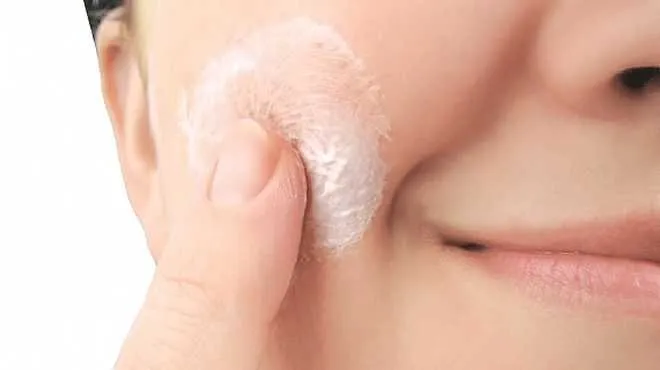Understanding Body Whitening
Body whitening is a skincare practice aimed at lightening the skin tone on various parts of the body. It’s often pursued to address issues like uneven skin tone, hyperpigmentation, and dark spots. The process involves using specific products, treatments, and lifestyle adjustments to reduce melanin production, which is the pigment responsible for skin color. Achieving brighter skin requires understanding the underlying causes of unevenness and adopting a comprehensive approach to skincare. This involves not only the application of topical treatments but also lifestyle changes that promote overall skin health. Different individuals have varying skin types and tones, and the results of body whitening can vary. The key is to be patient, consistent, and realistic about the outcomes. Consulting a dermatologist can provide personalized advice and guidance, ensuring that the chosen methods are safe and suitable for the skin type.
What Causes Uneven Skin Tone
Uneven skin tone can result from various factors, including sun exposure, hormonal changes, and skin conditions. Understanding these causes is crucial for developing effective body whitening strategies. Addressing the root causes ensures that the chosen methods will be sustainable and effective. It also helps manage expectations and allows individuals to make informed decisions regarding their skincare routine. Some of the primary contributors to an uneven skin tone are discussed below, and understanding these factors enables a more tailored approach to body whitening.
Sun Exposure

Prolonged exposure to the sun’s ultraviolet (UV) rays is a significant cause of uneven skin tone. UV rays stimulate melanin production, leading to tanning and, in some cases, the development of dark spots and hyperpigmentation. The damage from the sun can accumulate over time, making it essential to protect the skin from sun exposure. Consistent use of sunscreen and protective clothing can help minimize sun-induced skin damage and prevent further darkening or unevenness. The sun’s impact is often more pronounced in areas of the body that are frequently exposed, such as the face, neck, arms, and hands. Therefore, these areas require special attention and protection. Implementing a diligent sun protection routine is a cornerstone of maintaining an even skin tone and preventing further damage.
Hormonal Changes
Hormonal fluctuations can also influence skin tone, especially during pregnancy, menstruation, and menopause. Hormonal changes can trigger the overproduction of melanin, leading to conditions such as melasma, which causes dark patches on the skin. These hormonal shifts can affect various parts of the body, and the resulting hyperpigmentation may require specific treatments and care. Skincare strategies must often be adjusted to account for these hormonal influences. Consulting a dermatologist or healthcare provider can provide guidance on managing hormonal imbalances that affect skin tone. Understanding the impact of hormonal factors is crucial for effectively addressing and managing uneven skin tone.
Skin Conditions
Certain skin conditions like eczema, psoriasis, and acne can contribute to uneven skin tone. Inflammation and scarring from these conditions can lead to post-inflammatory hyperpigmentation (PIH), where dark spots develop after the inflammation subsides. Managing these underlying skin conditions is vital to prevent and treat uneven skin tone. Consulting a dermatologist is important to develop a proper treatment plan for these conditions, which may include topical creams, medications, and lifestyle adjustments. Addressing the root causes of the skin conditions is essential for achieving and maintaining an even skin tone. Proper skincare and management of skin conditions can minimize the impact of uneven skin tone and promote a healthier complexion.
Top 5 Body Whitening Tips for Faster Results

Achieving faster results in body whitening requires a combination of effective strategies. These tips focus on optimizing skincare routines, using beneficial products, and incorporating healthy lifestyle choices. Consistency and patience are key, but these methods can significantly accelerate the process of achieving a brighter, more even skin tone. By adopting these approaches, individuals can enhance their skincare efforts and see noticeable improvements in a shorter amount of time.
Exfoliate Regularly
Regular exfoliation helps remove dead skin cells, which can contribute to a dull complexion and uneven skin tone. Exfoliating also promotes cell turnover, allowing new, brighter skin cells to surface. This process enhances the effectiveness of whitening products by improving their penetration into the skin. Using gentle exfoliants, such as scrubs or chemical peels, two to three times a week is a good practice. Over-exfoliating can lead to irritation, so it’s important to balance frequency and product strength with the skin type. Regular exfoliation is a cornerstone of a successful body whitening routine, leading to faster and more visible results.
Use Skin Whitening Products
Skin whitening products contain ingredients that inhibit melanin production, thereby lightening the skin. These products come in various forms, including creams, lotions, serums, and masks. When choosing a skin whitening product, it is important to look for ingredients like hydroquinone, kojic acid, arbutin, and vitamin C, which are known for their effectiveness. Always follow the product’s instructions carefully and perform a patch test before applying it to a large area of the body to check for any adverse reactions. Consistency is key when using these products, and it may take several weeks or months to see visible results. Combining these products with other methods, such as regular exfoliation and sun protection, can significantly improve the outcomes of body whitening.
Choose Products with Key Ingredients

Selecting products with key ingredients is essential for achieving effective body whitening. Hydroquinone is a potent ingredient that reduces melanin production, but it should be used under the guidance of a dermatologist due to potential side effects. Kojic acid, derived from fungi, inhibits melanin formation and is often found in skin whitening products. Arbutin, a natural compound, is a gentler alternative to hydroquinone and can effectively lighten the skin. Vitamin C, an antioxidant, can brighten the skin and reduce the appearance of dark spots. Always choose products with a well-formulated blend of these and other effective ingredients. Reading the product labels carefully and understanding the role of each ingredient can help make informed choices and optimize the results of the body whitening routine.
Apply Sunscreen Daily
Sunscreen is critical for preventing further darkening of the skin and protecting it from the damaging effects of UV rays. Using sunscreen daily helps maintain the results of body whitening treatments and prevents new dark spots from forming. Choose a broad-spectrum sunscreen with an SPF of 30 or higher and apply it liberally to all exposed areas of the body at least 15-20 minutes before sun exposure. Reapply sunscreen every two hours, especially if you are swimming or sweating. Consistency in sunscreen application is essential for preserving the skin’s lighter tone. Sunscreen not only protects from the sun’s harmful effects but also complements other skincare efforts. This will promote a brighter and more even skin complexion.
Maintain a Healthy Diet
A healthy diet plays a vital role in overall skin health and can support body whitening efforts. Consuming antioxidant-rich foods, such as fruits and vegetables, helps combat free radicals that can damage skin cells. Drinking plenty of water keeps the skin hydrated and promotes a healthy complexion. Limiting processed foods, sugar, and excessive alcohol intake is also beneficial, as these can contribute to inflammation and skin issues. A balanced diet ensures that the body receives the necessary nutrients to support skin cell turnover and repair. Incorporating foods that are high in vitamins and minerals, such as vitamin C and vitamin E, can further enhance skin health and promote a brighter, more radiant appearance. A healthy diet, combined with a consistent skincare routine, will greatly contribute to faster and more effective body whitening results.
Hydrate Your Body

Proper hydration is essential for healthy skin and is crucial for the success of body whitening treatments. Drinking an adequate amount of water keeps the skin moisturized from within, which can improve its overall appearance and texture. Dehydrated skin tends to look dull and can emphasize imperfections, making the skin appear less bright. Aim to drink at least eight glasses of water a day, and increase your intake during hot weather or after physical activity. Hydration supports the body’s natural detoxification processes, which can remove impurities that might affect the skin’s clarity. Staying hydrated also ensures that the skin cells are functioning optimally, promoting cell turnover and a more radiant complexion. Proper hydration is a simple yet highly effective tip for faster results in body whitening.
Body Whitening Products That Work
Various body whitening products are available on the market, each with its formulation and active ingredients. Understanding the different types of products and knowing which ingredients are most effective can help individuals make informed choices and optimize their skincare routine. Products are also available in various forms, making it easier to incorporate them into daily skincare habits. The right choices can enhance the overall effectiveness of the body whitening process. Always select products that are suitable for your skin type and in accordance with your needs. Additionally, you may want to seek professional advice from a dermatologist or skincare expert to get the best possible results.
Creams and Lotions
Creams and lotions are popular choices for body whitening due to their ease of application and moisturizing properties. They are designed to be used regularly as part of a daily skincare routine, providing a consistent dose of active ingredients to the skin. Many creams and lotions contain ingredients such as hydroquinone, kojic acid, and vitamin C, which are known for their skin-lightening effects. When selecting a cream or lotion, it is important to consider your skin type and any specific skin concerns. Some creams and lotions are designed to address specific problems such as dark spots, uneven skin tone, and dryness. For best results, apply creams and lotions evenly to the affected areas of the body, following the product’s instructions. Consistency is key, and the use of these products in conjunction with sun protection can greatly enhance the process of body whitening.
Serums and Oils

Serums and oils often contain concentrated formulas and can provide targeted treatment for specific skin concerns, making them an important element of a body whitening routine. Serums are typically lightweight and designed to penetrate the skin more deeply, delivering powerful ingredients. Oils, on the other hand, can provide deep hydration and nourishment. Many serums and oils include skin-lightening ingredients, such as vitamin C, and various essential oils. Serums often contain potent antioxidants, such as vitamin C, which help brighten and protect the skin from environmental damage. Oils can provide deep hydration and improve skin elasticity, contributing to a more even skin tone. Serums should be applied to clean skin before other products, while oils can be used after serums or mixed into creams. Always follow the product’s instructions and incorporate these into your daily skincare routine to improve the effectiveness of body whitening.
Professional Treatments for Body Whitening
Professional treatments can provide more intensive and effective body whitening results than at-home products alone. These treatments are administered by trained professionals and can address deeper layers of the skin. They offer several benefits, including more rapid results, specialized solutions, and expert guidance. The two most common professional treatments are chemical peels and laser therapy. Seeking a consultation with a dermatologist or skincare specialist is essential before undergoing professional treatments. They can evaluate your skin type, identify your specific needs, and recommend the most appropriate and safe procedures.
Chemical Peels
Chemical peels involve applying a chemical solution to the skin to exfoliate and remove the outer layers. This process reveals new, brighter skin and reduces the appearance of dark spots and uneven skin tone. Chemical peels are available in various strengths, ranging from superficial to deep peels. Superficial peels target the outermost layers of the skin and are suitable for mild concerns. Deeper peels penetrate more deeply and are used for more pronounced hyperpigmentation. Before undergoing a chemical peel, a dermatologist will assess the skin and recommend the appropriate peel strength based on individual needs. After the treatment, it is important to follow aftercare instructions, including using sunscreen and avoiding sun exposure. Chemical peels can provide significant improvements in skin tone and texture with proper care.
Laser Therapy

Laser therapy utilizes focused beams of light to target and break down melanin in the skin. This treatment can effectively reduce dark spots, hyperpigmentation, and uneven skin tone. Different types of lasers are used for body whitening, with each type addressing different skin concerns. Laser therapy is often a precise treatment that can provide targeted results, but it requires several sessions to achieve optimal outcomes. Before undergoing laser therapy, a dermatologist will assess your skin and determine the most suitable laser type and treatment plan. After the treatment, it is important to follow all aftercare instructions, which typically include avoiding sun exposure and using sunscreen. Laser therapy can be a highly effective option for those seeking significant improvements in skin tone and overall radiance.
Aftercare and Maintenance for Body Whitening
Aftercare and maintenance are crucial for preserving the results of body whitening and preventing further skin damage. Following a consistent skincare routine and protecting the skin from the sun are essential practices. Adhering to these guidelines will ensure that the efforts to achieve brighter skin are sustainable and that the complexion remains healthy and radiant. Taking care of the skin post-treatment is just as important as the treatment itself. It guarantees that the results achieved are long-lasting and that the skin remains protected from any environmental damage. Additionally, it is important to consult with a dermatologist who can provide personalized guidance and recommendations.
Protect Your Skin from the Sun
Sun protection is vital for maintaining the results of body whitening treatments. Continued exposure to the sun can lead to renewed hyperpigmentation and negate the progress made. Applying sunscreen with an SPF of 30 or higher daily, even on cloudy days, is essential. Seek shade during peak sun hours, and wear protective clothing such as long sleeves, hats, and sunglasses. Reapply sunscreen every two hours, especially if you are swimming or sweating. Consistent sun protection helps prevent new dark spots from forming and allows the skin to maintain its lighter tone. Sun protection is critical in safeguarding the skin and ensuring that it remains bright and even-toned.
Moisturize Regularly
Regular moisturizing is key for maintaining healthy, hydrated skin. After body whitening treatments, the skin can become more sensitive and prone to dryness. Moisturizing helps to soothe and hydrate the skin, promoting faster healing and improving its overall texture. Choose a gentle, fragrance-free moisturizer that is suitable for your skin type and apply it daily. This will help prevent dryness and maintain the skin’s barrier function. Keeping the skin well-moisturized can also improve the effectiveness of other skincare products, ensuring optimal results. Regular moisturizing also contributes to a brighter and more radiant complexion, making it an essential component of the aftercare process.
Follow a Consistent Skincare Routine
Maintaining a consistent skincare routine is essential for sustaining the outcomes of body whitening and promoting long-term skin health. This routine should incorporate gentle cleansers, exfoliants, and targeted treatments like serums or creams, and moisturizers. Following a consistent regimen that includes cleansing, exfoliating, treating, and moisturizing, both morning and evening, will help the skin maintain its radiance. Adapt your skincare routine to address changing skin concerns and seasonal needs. Consistency ensures that the skin receives the necessary care and protection to remain bright, even-toned, and healthy. Regular skincare will contribute to the long-term maintenance of a brighter, more even skin tone.
